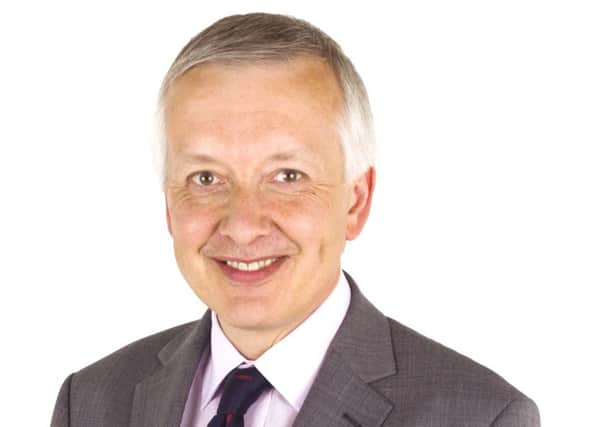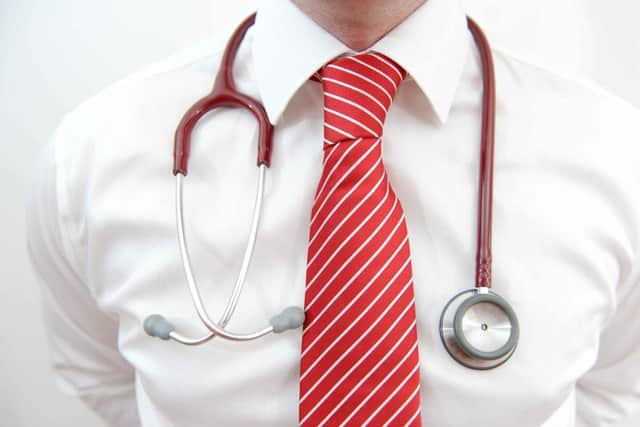I’m an old-fashioned GP but I back Skype appointments for patients and here’s why - Nick Summerton


But I have grown to accept that traditional general practice is dying. Waiting times to see GPs are too long and, in 2020, I don’t think it is acceptable that people must phone up at 8am – or queue outside the surgery on a cold morning – hoping that they can secure a slot to see a GP.
Also, many younger doctors no longer wish to work full-time within a general practice and are looking for portfolio careers or more flexible working arrangements.


Advertisement
Hide AdAdvertisement
Hide AdTo seek to improve patient care the Health Secretary, Matt Hancock, is committed to improving the use of IT within the NHS – especially the use of Skype for consultations. He has promised that, by 2024, every individual should be able to request a Skype appointment.
Although I am always rather sceptical about technological fixes, I actually think there is much to recommend the greater use of video consultations. Many of the private companies currently offering such services also seem to have little difficulty recruiting GPs to work for them.
Fifteen years ago, I led a programme of research into the earlier diagnosis of cancer by GPs. It soon became clear to me that, in the majority of cases, doctors get the most important and reliable information to spot cancer from simply talking to patients about their symptoms.
For example, if a 60-year-old man tells me over Skype that he has noticed blood mixed with his faeces, then he will require an urgent referral to a specialist for an assessment of his lower bowel. I don’t need to drag him in to the surgery to feel his tummy.
Advertisement
Hide AdAdvertisement
Hide AdKey symptoms such as bowel changes are also more likely to be mentioned by a patient if they have your full attention and a proper conversation rather than having to compete with my tuneless tapping on a computer keyboard.
Nowadays my patients already bring along photographs of bits of their body such as moles or rashes. Skype gives GPs an opportunity to observe individuals in real time and in their own home. Do they appear anxious or depressed? How are they breathing? Are their hands steady? What colour are their nails or the whites of their eyes? Can they easily get up from a chair and walk across the room?
Some individuals might even be able to tell me their blood pressure, their pulse rate, their temperature or even the amount of oxygen in their blood. All the tools to take these measurements are easy to use and are readily available for a few pounds from Amazon or your local pharmacist.
Over the years I have always worried that much of what I might say to patients is forgotten the moment they leave my room. Although I might scribble notes or `job lists` for individuals to take away with them I wonder if they can read my writing.
Advertisement
Hide AdAdvertisement
Hide AdBy recording consultations Skype allows patients to replay the conversation they have had with the GP as often as they wish and remind themselves of the plan that was agreed. Also, a recorded consultation is a much better assessment of the quality of my clinical care than getting me to write a report each year listing the courses I have attended or the thank you cards I have received.
In addition, offering a Skype consultation as an alternative to a face-to-face appointment can improve access to health care for some people. For example those who find it difficult to get in to see a GP between 8am and 6pm, those who feel less comfortable about visiting a GP surgery – such as adolescents with mental health problems - or those with poor command of English might particularly welcome chatting to a doctor over Skype.
Clearly Skype will never suit everyone and is not appropriate for every medical problem. You cannot hold a patient’s hand or listen to their heart over Skype. Also, some people might be unable to use the technology or have an inadequate broadband connection.
Offering Skype slots alongside face-to-face appointments could do a lot to improve the state of general practice. But to guarantee that Skype works for the benefit of patients we need to ensure that it is developed carefully and overseen by GPs in collaboration with IT companies and experts who have already gained a track record in this field.
Advertisement
Hide AdAdvertisement
Hide AdHistory has clearly demonstrated that designing or implementing patient focused IT projects is certainly not a job for the mandarins at the Department of Health or NHS managers.
Nick Summerton is a GP in East Yorkshire and an author